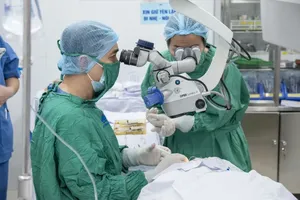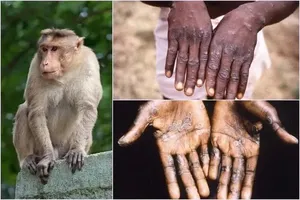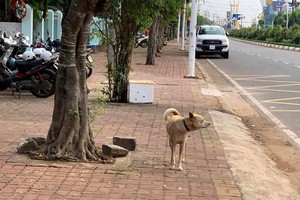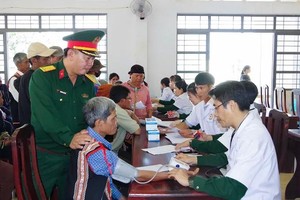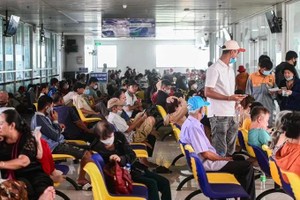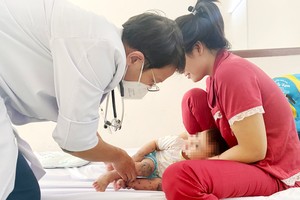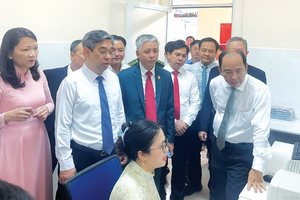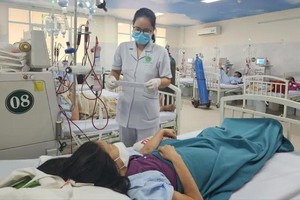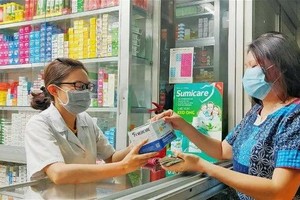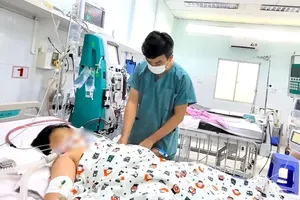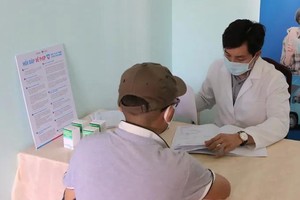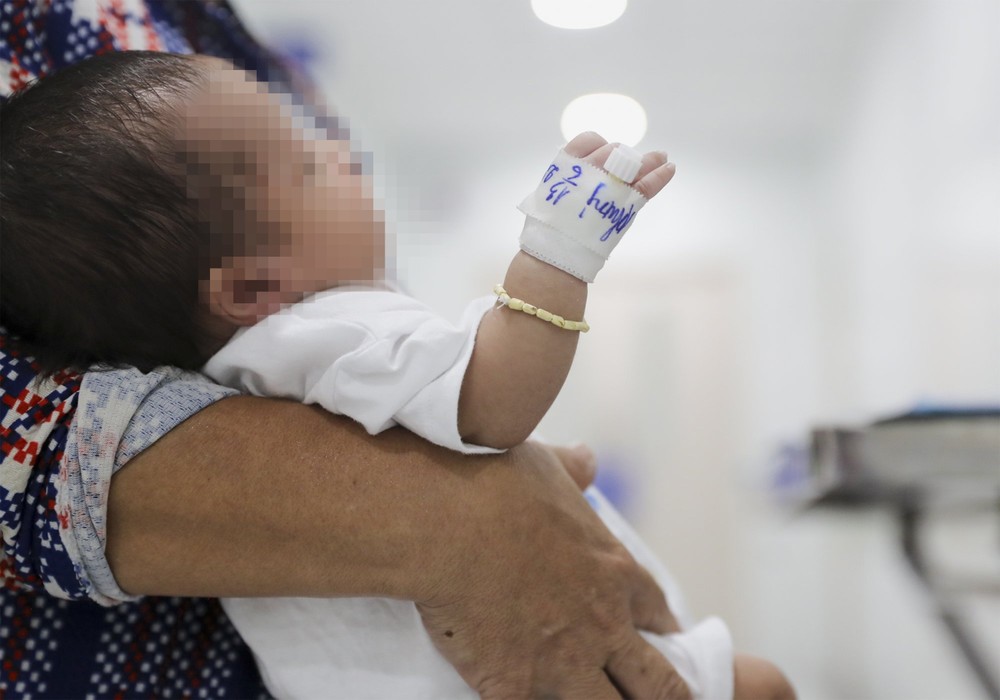
Many people who are living with a rare disease face a long and expensive diagnostic journey and they are even at high risk of death. Medical experts believe that social resources and supportive policies are needed for people with rare diseases to have the opportunity to live and develop normally.
Some ten years ago, when the son of a woman in Dong Nai Province began to show strange signs such as stunting, and slow development, she took her son to many doctors but could not find the cause. Years passed by, the son was still sick, with a rough face, slow development, abnormal hand development, and body aches.
About three years ago, while taking my child to Children's Hospital 1 in Ho Chi Minh City for an examination, the doctors performed a special test and diagnosed the child with MPS - Mucopolysaccharidoses are a group of inherited metabolic diseases caused by the absence or malfunctioning of certain enzymes the body needs to break down molecules called glycosaminoglycans.
According to Deputy Director Nguyen Thi Thanh Huong of Children's Hospital 1, the hospital receives about 50 pediatric patients hospitalized with rare diseases each year. From 2017 until now, the hospital has been managing about 500 pediatric patients. Treatment for pediatric patients with rare diseases faces many difficulties because there is no specialized unit for rare diseases so far and diagnosis and treatment are still inadequate. Meanwhile, the Hanoi-based National Children's Hospital is currently managing about 17,400 patients, mainly those with congenital metabolic disorders.
Director of the National Children's Hospital Associate Professor Tran Minh Dien said that rare diseases can lead to death or mental and motor disabilities for children. If the disease is detected early, it is possible to save the child's life and even help the child develop completely normally. Not only children but also many adults with rare diseases do not get timely diagnosis and care.
For instance, a 62 year old man in Ho Chi Minh City has suffered swelling all over his body without finding the cause for 35 years. When he had an accidental allergy examination at Ho Chi Minh City University of Medicine and Pharmacy, he was diagnosed with hereditary angioedema - a rare genetic disorder. The disease causes recurring episodes of local swelling and edema in different parts of the body, such as the abdomen, face, feet, genitals, hands, throat, and even internal organs. The disease can be life-threatening when edema appears in the airways.
According to the World Health Organization, rare diseases are diseases which affect a small number of people compared to the general population and specific issues are raised in relation to their rarity. In the world, a disease is considered to be rare when it affects 1 person per 2000, an estimated 3.5 percent -6 percent of the world's population has a rare disease or 300-450 million people.
Currently, about 7,000 rare diseases are known, of which 72 percent-80 percent are caused by genetics, the rest are infections, allergies, and autoimmune diseases.
In recent years, with the development of science-technology and professional capacity in the medical field, in Vietnam, many rare diseases have been discovered and treatment solutions have been proposed, bringing new life to sick people.
However, doctors say that people with rare diseases face many challenges in accessing appropriate medical care. According to doctor Nguyen Thi Thanh Huong, only a few medical facilities receive and provide treatment for rare disease patients; however, after discovering the disease, these facilities face major barriers in terms of cost to obtain treatment drugs.
Currently, only children under 6 years old with rare diseases are covered by health insurance. In 2023, Children's Hospital 1 was given about VND10 billion in health insurance for rare disease treatment while the remaining patients must pay for themselves. Luckily, some pharmaceutical manufacturers have accepted to support drugs to treat rare diseases, but they provide small quantities; therefore, patients must go through the draw, said Dr. Nguyen Thi Thanh Huong.
According to statistics from the Ministry of Health, Vietnam currently has about 100 rare diseases, with about 6 million people infected including 58 percent of children. Worse, about 30 percent of children with rare diseases die before the age of 5. People with rare diseases have been facing many challenges that affect their quality of life, such as delayed diagnosis due to scarcity of information about the disease and unaffordable treatment costs without support from the State budget or social organizations.
Drugs to treat rare diseases have special properties and are intended for special groups of patients, so the criteria for approval of rare drugs in the Government or health insurance payment program are also more special than for common drugs.
Experts believe that rare drug approval criteria should be considered in health insurance payments. At the same time, it is necessary to research and pilot new financial mechanisms and initiatives to open up opportunities to increase access to rare drugs.
The Ministry of Health has just signed a memorandum of cooperation with four multinational pharmaceutical companies to prioritize treatment support for patients with rare diseases. At the same time, the Ministry proposed solutions for developing specific policies on supplementary health insurance packages to help patients with rare diseases receive early and complete treatment.




